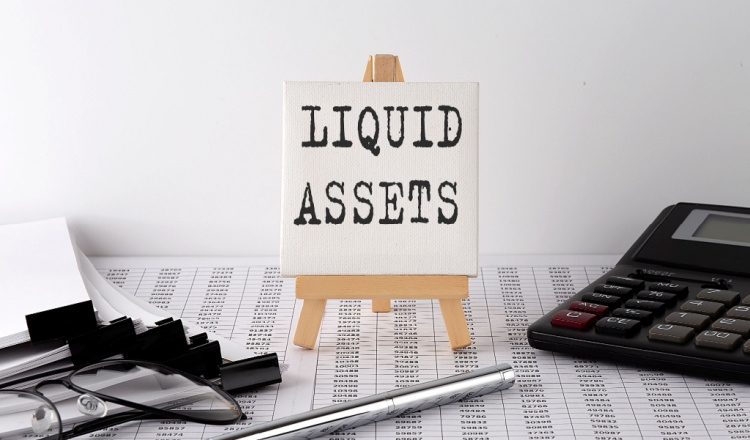What Are Liquid Assets?
It may surprise you to know that the definition of an “asset” is quite simple: Anything that is expected to have economic value and that can be owned by an individual or an entity is considered an asset. When reviewing and taking stock of your own assets, it’s important to note that the value of an asset is often taxed; for example, taxes are levied on assets left by someone who dies. Such assets, often referred to as an “estate,” may be used to pay off any debts left behind by the decedent, or they may be distributed to beneficiaries if specified in the decedent’s trust or will.
There may come a time in life–maybe even more than one time – when you need to easily and quickly access cash. That’s when having liquid assets, in particular, can prove beneficial. Knowing the ins and outs of liquid assets can help you decide which ones, if any, are right for you, and what type of liquid asset might best suit your lifestyle and your needs.

What Is A Liquid Asset?
A liquid asset is an asset that can be readily converted to cash or actual cash on hand. In general, a liquid asset can be sold with little or no impact on its value. Liquid assets are the most basic type of asset and are commonly used by businesses and consumers.
For a liquid asset to be considered liquid several factors must be present, including:
- It must be in an established market
- The market must have a number of interested buyers
- Ownership of the asset can be easily transferred
Cash on hand is considered a liquid asset because it can be readily accessed. Examples of liquid cash assets include money in a savings account, checking account, or money market account, all of which allow for easy withdrawals to settle bills or liabilities.

Cash Equivalents Explained
Cash equivalents are investments with short-term maturities of less than 90 days; they’re considered liquid assets because they can be readily converted to cash.
Cash equivalents include:
- U.S. Treasury bills and bonds.
- Mutual funds – a managed portfolio of investments that includes pooled investor funds placed in a variety of different financial securities such as stocks and bonds. Mutual funds are considered liquid owing to the fact that investors can sell their shares when they wish and collect their money within a short time frame.
- Money-market funds – a type of mutual fund that invests in low-risk, low-yielding investments such as municipal bonds.
- Marketable securities and stocks, which can be converted to cash in a relatively short period of time.

A Look At Non-Liquid Assets
Non-liquid assets are assets that can be difficult to quickly access or liquidate. Real estate investments and land are considered non-liquid assets because transactions involving either one of them, or both, can take months, meaning that a company or an individual may have to wait for an extended period of time before they receive cash from the sale.
For example, consider what could take place if a company that owns real estate property decides to liquidate in order to pay off the debt within a month. Selling the property might take more than a month as the process will require finding an investor, negotiating and agreeing on a price, and finalizing the sale closing.
If, however, the company needs to quickly sell the property, it might feel compelled to sell it at a lower price than the current market value, or the owner could sell it for less than its original price. In these types of scenarios, liquidating a real estate investment can significantly impact its value.

Tangible And Intangible Assets
Assets are usually classified as either tangible or intangible. Tangible assets, which are physical in nature, have an easily determined material value in a public market. Because of their physical properties, tangible assets are at risk of being stolen, damaged, or lost because of an act of nature or human actions such as theft.
An intangible asset is not physical in nature. Examples of intangible assets include brand recognition and goodwill, as well as a broad range of intellectual property categories that include creations of the human intellect such as copyrights, patents, and trademarks.
